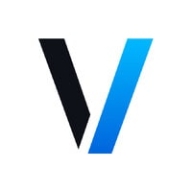

Find out what your peers are saying about Sonar, Veracode, GitGuardian and others in Static Application Security Testing (SAST).
| Product | Market Share (%) |
|---|---|
| Veracode | 6.2% |
| Semgrep | 2.9% |
| Other | 90.9% |


| Company Size | Count |
|---|---|
| Small Business | 70 |
| Midsize Enterprise | 43 |
| Large Enterprise | 112 |
Semgrep is an advanced static analysis tool designed to identify vulnerabilities and enforce coding standards, catering primarily to professionals with a focus on enhancing code security and quality.
Engineered for software development environments, Semgrep delivers efficient security feedback with minimal setup. By offering a rich collection of rule sets, it allows customization and integration into CI/CD pipelines, supporting continuous code examination. Semgrep not only uncovers hidden flaws but also enforces best practices, making it a valuable asset for development teams seeking to build secure and reliable software.
What are the most important features of Semgrep?In industry applications, Semgrep is a popular choice for sectors such as finance and healthcare, where code integrity and security are paramount. Its integration capabilities allow for effective oversight of compliance and secure coding standards without disrupting existing workflows. This adaptability ensures it meets sector-specific requirements, making it a trusted tool in fields where data privacy and protection are critical.
Veracode is a leading provider of application security solutions, offering tools to identify, mitigate, and prevent vulnerabilities across the software development lifecycle. Its cloud-based platform integrates security into DevOps workflows, helping organizations ensure that their code remains secure and compliant with industry standards.
Veracode supports multiple application security testing types, including static analysis (SAST), dynamic analysis (DAST), software composition analysis (SCA), and manual penetration testing. These tools are designed to help developers detect vulnerabilities early in development while maintaining speed in deployment. Veracode also emphasizes scalability, offering features for enterprises that manage a large number of applications across different teams. Its robust reporting and analytics capabilities allow organizations to continuously monitor their security posture and track progress toward remediation.
What are the key features of Veracode?
What benefits should users consider in Veracode reviews?
Veracode is widely adopted in industries like finance, healthcare, and government, where compliance and security are critical. It helps these organizations maintain strict security standards while enabling rapid development through its integration with Agile and DevOps methodologies.
Veracode helps businesses secure their applications efficiently, ensuring they can deliver safe and compliant software at scale.
We monitor all Static Application Security Testing (SAST) reviews to prevent fraudulent reviews and keep review quality high. We do not post reviews by company employees or direct competitors. We validate each review for authenticity via cross-reference with LinkedIn, and personal follow-up with the reviewer when necessary.